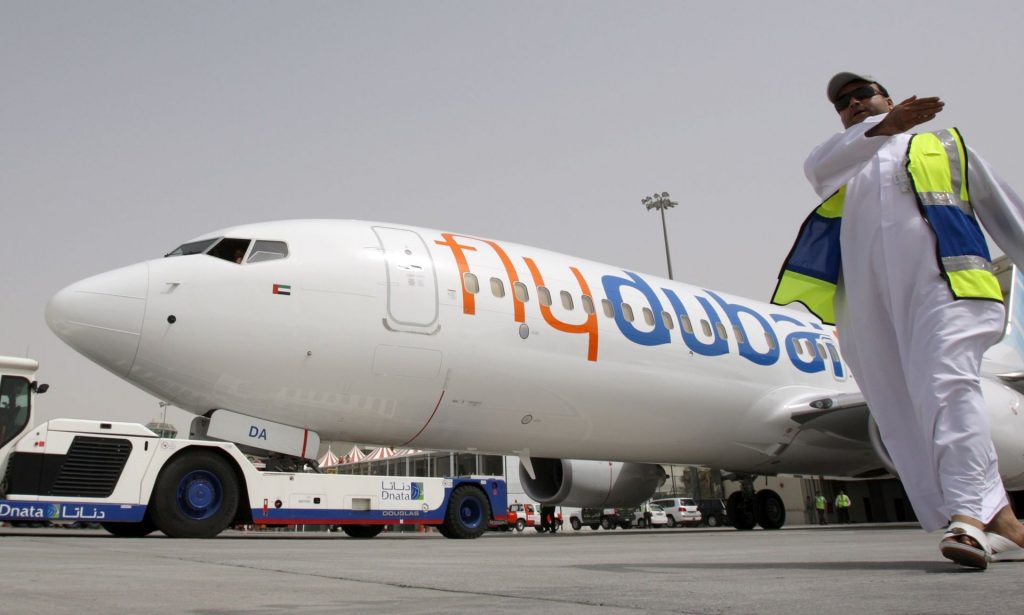Middle East airports and passengers are grappling with new U.S. and British rules barring laptops and other electronic gadgets in carry-on luggage. Both governments prohibited large electronic devices in the cabins of flights headed to their countries. In announcing the rules, officials cited security reasons but didn’t supply many specifics.
1. Is this type of ban unusual?
Yes. And some security analysts find it baffling. The stated purpose of the U.S. ban, which affects nonstop flights from 10 Middle Eastern airports, is to protect travelers from security threats on commercial flights. There certainly have been instances where electronic devices were used in terror attacks. The U.S. Department of Homeland Security did not cite a specific threat when it said the ban is aimed at terror groups looking to bypass airport security, other than that it has “reason to be concerned.” Representative Adam Schiff of California, the top Democrat on the U.S. House Intelligence Committee, said he’d been briefed on the situation and that the steps are “both necessary and proportional.” The U.K. ban is similar but applies to fewer countries.
2. What’s the reaction?
The Persian Gulf hubs affected say they have high safety standards to protect fliers. Some aviation consultants, including Addison Schonland with AirInsight Inc., say they know of no credible threats involving technology. They say the ban won’t necessarily make flying any safer. Determined terrorists, for example, could fly out of unaffected airports beyond the 10 the U.S. is naming. Or they could place a bomb in devices in checked-in luggage. That has prompted some analysts to suggest that protectionism could be at play here.
3. How so?
One motivation for the ban, some aviation experts say, might be to prompt business travelers to take alternative routes via European hubs to curb the growth of the big three Gulf carriers: Emirates, Etihad Airways PJSC and Qatar Airways Ltd. U.S. airlines have long complained that those three are unfairly subsidized by their governments and have lobbied to restrict their expansion. President Donald Trump has said he plans to help U.S. airlines compete with foreign carriers that are aided by their governments. The move also comes just weeks after Trump tried to bar citizens of seven predominantly Muslim countries from entering the U.S.
4. Which countries and airlines are affected?
The eight countries affected by the U.S. ban are Egypt, Turkey, Kuwait, Saudi Arabia, Jordan, Morocco, Qatar and the United Arab Emirates. The biggest carriers affected are Turkish Airlines and the three leading Persian Gulf operators (Emirates, Etihad Airways and Qatar Airways). No U.S. carriers fly to the affected cities. The U.K.’s ban applies to flights originating from six countries: Turkey, Lebanon, Egypt, Saudi Arabia, Jordan and Tunisia.
5. Is it temporary and will it spread to more airports?
For now, the ban is indefinite. The U.S. has not ruled out that more airports could be added to the list, saying that as threats change, so too will the Transportation Security Administration’s requirements.
6. Why does this apply to laptops and not mobile phones?
That’s unclear. The U.S. said it tried to balance risk with the effect on travelers and therefore has determined that smartphones will be allowed at this time. Other prohibited items include tablets, e-readers, cameras, portable DVD players, electronic game units bigger than smartphones and travel printers or scanners.
7. How will this affect screening and passengers?
It will probably cause check-in delays at bigger airports, some of which must screen more than 500 passengers looking to board double-decker A380 planes. Passengers with connecting flights are advised to pack large personal electronic devices in checked bags at their originating airport. For example, Etihad Airways said its U.S.-bound passengers transiting in Abu Dhabi must place the banned devices in checked bags at the airport of origin.
8. When does it start?
The U.S. said it notified airlines of the ban on March 21 at 3 a.m. Eastern Daylight Time and gave them 96 hours to comply. That means it will take effect at 3 a.m. Saturday, March 25, but some airlines are enforcing it earlier.
9. Why now?
We don’t know. The U.S. government fact sheet said this is based on “evaluated intelligence” showing that terrorist groups continue to target aviation, including by smuggling explosive devices in consumer products.

